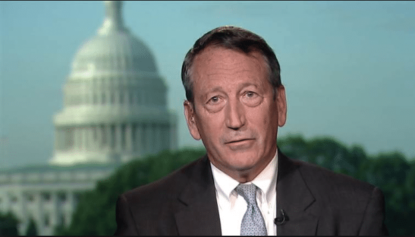Haiti – Its capital is blighted with earthquake rubble. Its countryside is shorn of trees, chopped down for fuel. And yet, Haiti’s land may hold the key to relieving centuries of poverty, disaster and disease: There is gold hidden in its hills — and silver and copper, too.
A flurry of exploratory drilling in the past year has found precious metals worth potentially $20 billion deep below the tropical ridges in the country’s northeastern mountains. Now, a mining company is drilling around the clock to determine how to get those metals out.
In neighboring Dominican Republic, workers are poised to start mining the other side of this seam later this year in one of the world’s largest gold deposits: 23 million ounces worth about $40 billion.
Haiti’s annual budget is $1 billion, more than half provided by foreign assistance. The largest single source of foreign investment, $2 billion, came from Haitians working abroad last year. A windfall of locally produced wealth could pay for roads, schools, clean water and sewage systems for the nation’s 10 million people, most of whom live on as little as $1.25 a day.
“If the mining companies are honest and if Haiti has a good government, then here is a way for this country to move forward,” said Bureau of Mines Director Dieuseul Anglade.
In a parking lot outside Anglade’s marble-floored office, more than 100 families have been living in tents since the earthquake. “The gold in the mountains belongs to the people of Haiti,” he said, gesturing out his window. “And they need it.”
Haiti’s geological vulnerability is also its promise. Massive tectonic plates squeeze the island with horrifying consequences, but deep cracks between them form convenient veins for gold, silver and copper pushed up from the hot innards of the planet. Prospectors from California to Chile know earthquake faults often have, quite literally, a golden lining.
Until now, few Haitians have known about this buried treasure. Mining camps are unmarked, and the work is being done miles up dirt roads near remote villages, on the opposite side of the country from the capital. But U.S. and Canadian investors have spent more than $30 million in recent years on everything from exploratory drilling to camps for workers, new roads, offices and laboratory studies of samples. Actual mining could be under way in five years.
“When I first heard whispers of this I said, `Gold mines? There could be gold mines in Haiti?'” said Michel Lamarre, a Haitian engineer whose firm, SOMINE, is leading the exploration. “I truly believe this is our answer to taking care of ourselves instead of constantly living on donations.”
On a rugged, steep Haitian ridge far above the Atlantic, brilliant boulders coated with blue-green oxidized copper jut from the hills, while colorful pebbles litter the soil, strong indicators that precious metals lie below.
“Just look down,” said geologist John Watkins. “Where there’s smoke, there’s fire.”
Nearby, 8-year-old Whiskey Pierre and his barefoot buddies stared at a team of sweat-drenched men driving a narrow, shrieking diamond bit 900 feet into the ground.
“That is a drill!” shouted Whiskey, bouncing on his toes. “The man drill to get gold!”
The workers periodically pulled up samples and knocked them into boxes. The first 40 feet yielded loose rocks and gravel. About 160 feet down, cylinders of rock came back peppered with gold. At 1,000 feet down, rocks were heavily streaked with copper.
Geologists extrapolating from depth and strike reports estimate at least 1 million ounces of gold at two sites. In April, prospectors found the first significant silver ever reported in Haiti: between 20 million and 30 million ounces. And in the end, it may be copper that is the most lucrative: geologists suspect that more than 1 million tons lay in just one of many areas under exploration.
The prices of precious metals have been volatile in recent years, with copper selling for about $8,000 per ton, silver at $30 an ounce, and gold at $1,600 per ounce.
“Ultimately, I think mining is going to dwarf anything else in Haiti,” says Michael Fulp, an Albuquerque, N.M.-based geologist who visited the drill sites. “Usually you’ve got about a one-in-1,000 chance of making a mine from the exploratory stage, but those odds are much better in Haiti because of the lack of any previous modern-day exploration and very, very promising samples.”
Gold was last gathered in Haiti in the 1500s, after Christopher Columbus ran the Santa Maria onto a Haitian reef. Spaniards enslaved the Arawak Indians to dig for gold, killing them off with harsh conditions and infectious diseases. When the Spaniards learned of even more lucrative deposits in Mexico, they moved on.
In the 1970s, United Nations geologists documented significant pockets of gold and copper, but foreigners weren’t willing to risk their cash in a country where corruption and instability has long discouraged outside investment.
Ironically, it was only after the catastrophic 2010 earthquake that investors saw real opportunity. Fifteen days after a seismic jolt brought down much of Port-au- Prince, a Canadian exploration firm acquired all of the shares of the only Haitian firm holding full permits for a promising chunk of land in the northeast.
“Investors want to get in at the bottom,” said Dan Hachey, president of Majescor Resources, the Canadian company, “and I figured after that earthquake, Haiti was as low as it could get.”
Hachey was also betting that the $10 billion in foreign assistance promised for earthquake recovery would force change and accountability.
“The eyes of the world will not allow the government to fool around,” he said.
Three firms are considering mining in Haiti, but so far only SOMINE has full concessions to take the metals out of the mountains. Those permits, for 50 square kilometers (31 square miles), were negotiated in 1996 under President Rene Preval and require the firm to hire Haitians whenever possible.
In exchange for minimal permit fees, SOMINE committed to spend $2.25 million in the first two years. In addition, it will pay $1.8 million after a feasibility study, according to the contract.
Bottom line: Haitians should get $1 out of every $2 of profits, compared with about $1 out of $3 that most countries get from mining firms.
Discoveries of rich resources, whether diamonds, oil or gold, often prompt great economic booms but come with great risk of environmental, health and social problems. Chile, one of the wealthiest nations in Latin America, is the world’s largest copper exporter, deriving a third of its income from the metal. Peru, with one of the fastest growing economies in the world, has privatized most of its mines in recent years, and now gets about 20 percent of its total revenues from the industry.
Though the contractual terms are generous for Haiti, there is plenty to be cautious about. Haiti’s government is repeatedly rated as one of the most corrupt in the world. The mines would ostensibly be regulated by government officials responsible for enforcing environmental, mining and corporate laws, but at this point those officials don’t exist and there are neither plans nor budgets to hire them.
Further, open pit mines, common around the world, are crater-like holes made up of a series of massive terraced steps that drop thousands of feet into the ground. When the resources are exhausted, usually after about 25 years, the pits can be refilled or converted into reservoirs. In many cases, the mines leave serious problems — environmental contamination, displaced communities and mountaintops torn asunder.
From Papua New Guinea to the Philippines to Brazil, mining accidents have allowed tons of waste to be spilled into rivers and lakes, creating environmental disasters.
“In low-income countries, the dangers are substantial,” said UCLA political science professor Michael Ross. “The great irony of mineral wealth is that those countries that most desperately need infusions of mineral revenue — low-income countries with weak governments — are also least likely to manage these resources wisely, for the benefit of the country.”
Read the rest of this story on Businessweek.com


